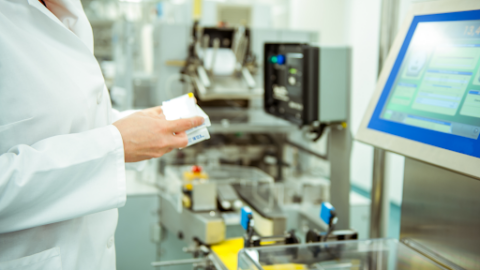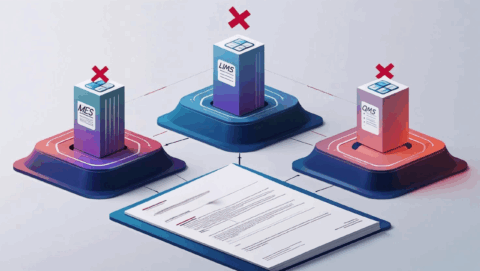Small pharmaceutical businesses face significant challenges, including limited resources and a smaller pool of internal expertise. These constraints can impede their ability to develop, adhere to complex rules, and compete effectively in the market.
Traditional pharmaceutical development and compliance methods are often prohibitively expensive and time-consuming for these businesses, so they must switch to more environmentally friendly, tech-driven solutions. According to Gartner, the high costs associated with developing and launching new products place a substantial burden on small pharmaceutical companies.
Mareana is a platform created to overcome these limitations by bridging the knowledge gap with automation and powerful analytics. In addition to streamlining intricate procedures, this technology expands the capabilities of small pharmaceutical companies. It enables them to function more effectively and compete at a level previously exclusive to their larger counterparts.
The Expertise Gap in Small Pharma
The difference in technical know-how and operational capability between small businesses and larger pharmaceutical companies is commonly referred to as the “expertise gap” in small pharma.
This disparity can show up in crucial areas that require precise execution and in-depth expertise, such as medication development, regulatory compliance, and scale-up procedures. Smaller businesses often struggle to keep up with evolving industry standards and technological advancements due to limited resources and access to specialist expertise.
Not only does this shortfall delay product development timelines, but it also impacts compliance and market competitiveness. Missed opportunities and a weakened market presence can result from an inability to scale operations or navigate complex regulatory environments effectively. Therefore, bridging this knowledge gap is vital for the survival and growth of small pharmaceutical companies.
Role of Digital Tools in Bridging the Gap
Digital tools and platforms enable small pharmaceutical companies to enhance their capabilities beyond their size limitations.
Digital CMC (Chemistry, Manufacturing, and Controls)
Digital CMC tools are essential for improving the operational capabilities of small pharmaceutical companies. These technologies simplify the monitoring and documentation of production processes, quality assurance, and compliance data, all of which are crucial for regulatory approval.
By automating certain CMC process steps, small businesses can significantly reduce the risk of compliance issues by ensuring accuracy and consistency in their submissions. Additionally, digital CMC tools enable real-time monitoring and analysis of manufacturing data. This adaptability is particularly beneficial for small businesses looking to expand operations or enhance product compositions without the burden of intensive manual oversight.
Pharmaceutical Technology Transfer
Pharma tech transfer involves moving technology from development to production or from one manufacturing location to another, a process that is crucial for entering new markets and scaling production. Digital tools significantly ease this process by ensuring precise documentation and replication of manufacturing processes, thus maintaining quality across multiple locations.
Advanced analytics and simulation tools integrated into tech transfer platforms assist in predicting outcomes and optimizing processes before physical resources are committed. For small pharmaceutical companies, right first time tech transfers are crucial. This ensures that operations are efficient from the start, reducing costly revisions and delays that are especially burdensome for smaller firms.
The ability to conduct tech transfers correctly the first time not only preserves resources but also accelerates market entry and ensures compliance with global standards.
Mareana: Empowering Small Pharma
Mareana is specifically designed to address the unique challenges faced by small pharmaceutical companies. It provides the tools needed to efficiently bridge the expertise gap and offers a range of features that transform their operational dynamics:
- Advanced Analytics: This capability allows small sites to conduct in-depth analysis of their operations without the need for extensive in-house expertise.
- Automated Systems: This includes automating data entry, compliance checks, and report generation, which significantly frees up valuable resources and allows staff to focus on more strategic tasks.
- Scalability: Mareana supports small pharma in scaling their operations smoothly without compromising on performance or compliance.
- Right First Time Tech Transfers: With its digital tools, Mareana makes tech transfers more accurate, ensuring they’re done right the first time. This speeds up the market entry process and improves operational efficiency.
Small pharmaceutical companies especially benefit from Mareana’s “digital dossier” feature. This comprehensive toolset streamlines the collection and management of regulatory documentation necessary for tech transfer and product approvals.
The digital dossier feature ensures that all required documents are accurate, up-to-date, and readily available, significantly streamlining the regulatory submission process. This not only accelerates market entry but also simplifies the tech transfer procedure, ensuring that important information and documents are systematically organized and available at every stage of pharmaceutical development and production.
Integrating Mareana into Small Pharma Operations
This detailed guide will help small pharmaceutical businesses integrate Mareana and enable them to optimize operations and overcome resource constraints.
Step 1: System Assessment and Requirements Gathering. Understand the current infrastructure and specific needs of the organization. Conduct a thorough assessment of existing systems and processes to identify any gaps or areas for improvement.
Step 2: Planning and Customization. Work with Mareana’s team to plan the integration of Mareana into your operations. This phase involves customizing the platform to fit the specific workflows and regulatory frameworks relevant to your business. Identify and outline clear projects or objectives you aim to achieve with the software to ensure that the setup aligns with your strategic goals.
Step 3: Implementation and Integration. Begin the implementation process. The platform’s modular design allows for phased implementation, where different components can be deployed step-by-step to ensure each phase is optimized before moving on to the next.
Step 4: Training and Onboarding. Training and empowering your staff is key to the successful adoption of any new technology. Mareana provides comprehensive training sessions and resources to ensure that all users are proficient in using the platform.
Step 5: Continuous Support and Optimization. Mareana’s ongoing support and the platform’s “digital solutions in pharma” capabilities ensure that your operations remain agile and can adapt to any new challenges or regulatory changes.
Step 6: Scaling and Advancement. As your company grows, Mareana scales with you. The platform’s flexible architecture supports easy scaling, which allows you to expand its capabilities as your operational needs evolve.
Conclusion
Mareana’s digital transformation offers small pharmaceutical enterprises a robust solution to common challenges stemming from limited resources and experience. Using the platform’s extensive digital tools, like digital dossier and digital CMC, businesses can improve their operational capabilities, guarantee compliance, and become more competitive in the market.
Additionally, the platform’s ability to integrate seamlessly into existing systems and processes means that companies can start realizing the benefits quickly without significant downtime or disruption.
Get in touch with Mareana today to discover more about Mareana or to arrange a detailed demonstration. Transform your operations, streamline your processes, and enhance your competitive edge in the pharmaceutical industry.




 Learn more
Learn more


